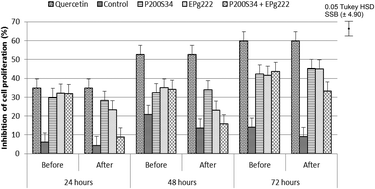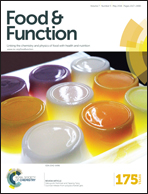Potential antimicrobial and antiproliferative activities of autochthonous starter cultures and protease EPg222 in dry-fermented sausages
Abstract
This work studied the presence of nitrogen compounds with bioactive properties in Iberian pork sausages that were manufactured using different autochthonous starter cultures (Pediococcus acidilactici MS200 and Staphylococcus vitulus RS34) and protease EPg222. Nitrogen compounds were extracted and evaluated for their antimicrobial effect against spoilage and pathogenic bacteria, such as Bacillus cereus, Escherichia coli, Salmonella choleraesuis, Staphylococcus aureus and Listeria monocytogenes, and antiproliferative activity on the HT-29 colon adenocarcinoma cell line. Dry-fermented sausages elaborated with starter cultures P200S34 and protease EPg222 generate extracts that cause inhibition of the growth of pathogens reaching 25% inhibition of Bacillus cereus, making this a promising tool for biocontrol in the meat industry. On the other hand, the inoculation of well-adapted starter cultures with high proteolytic activity also increased the antiproliferative activity of these extracts, around 45% inhibition at 72 h, mainly due to an increase in free amino acids, such as Lys and Pro, but also small peptides.


 Please wait while we load your content...
Please wait while we load your content...